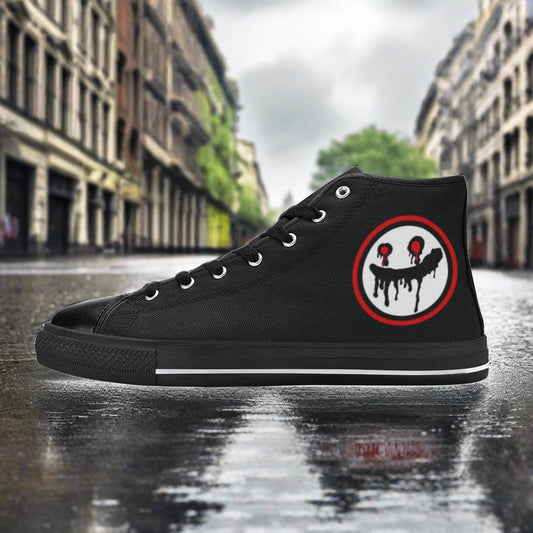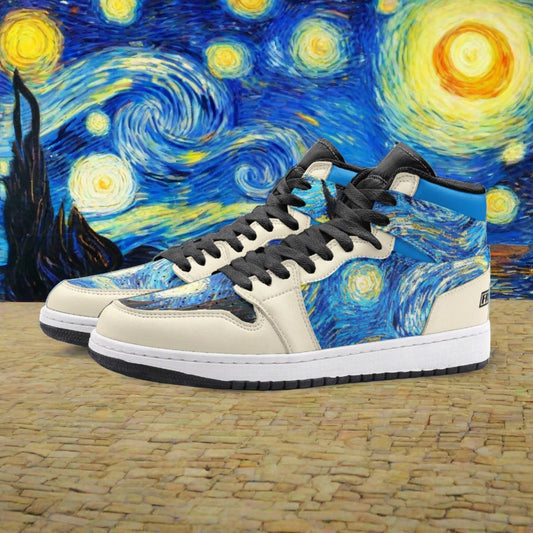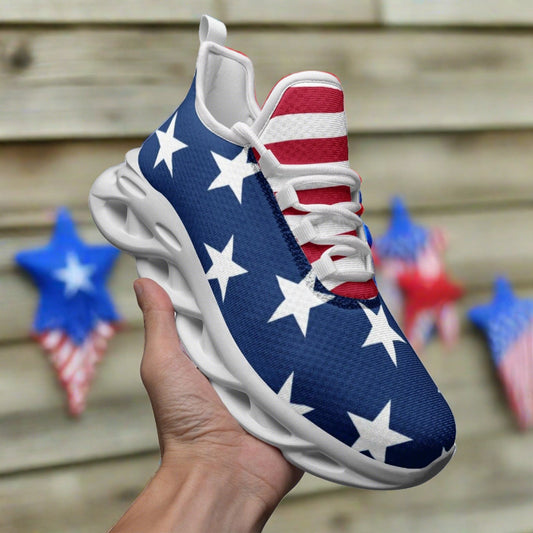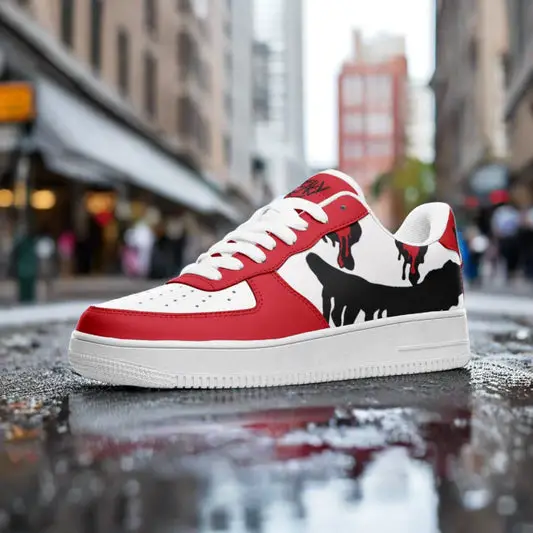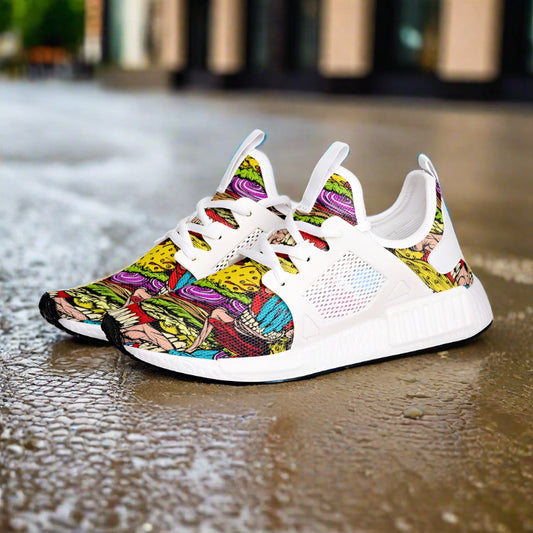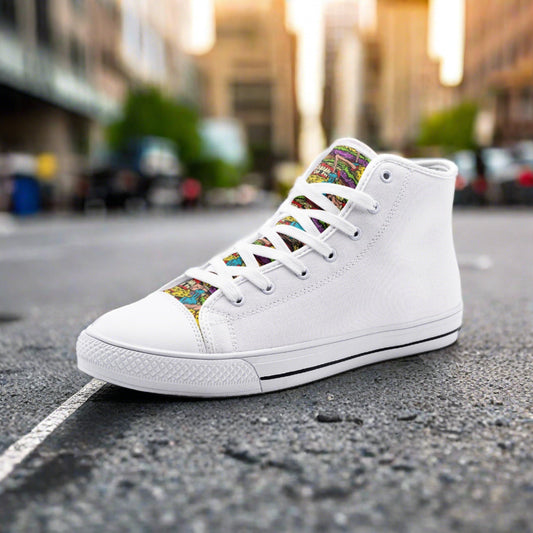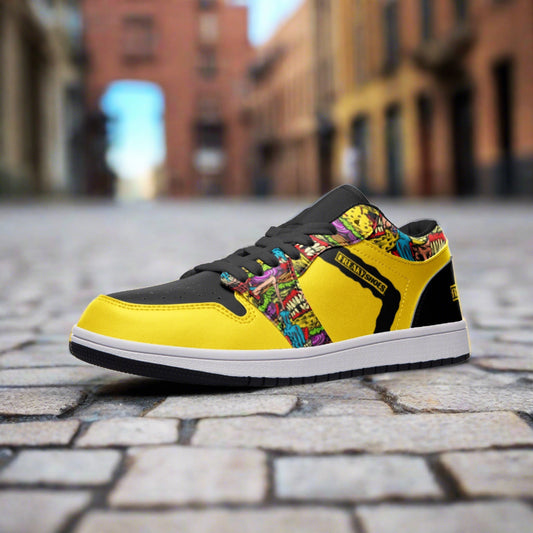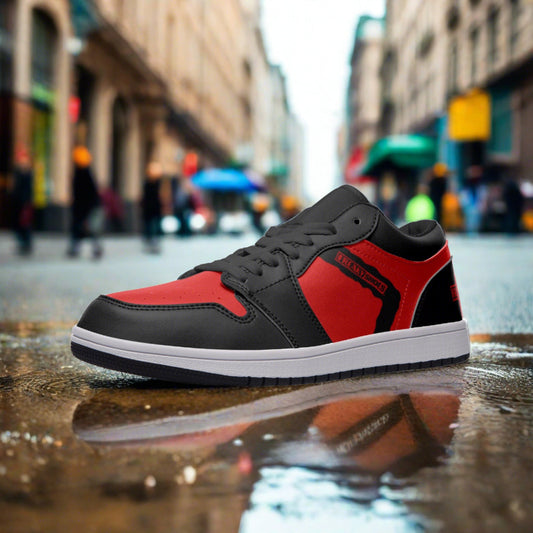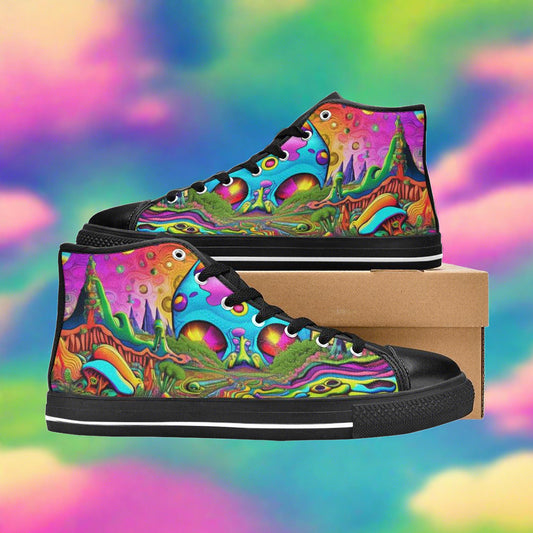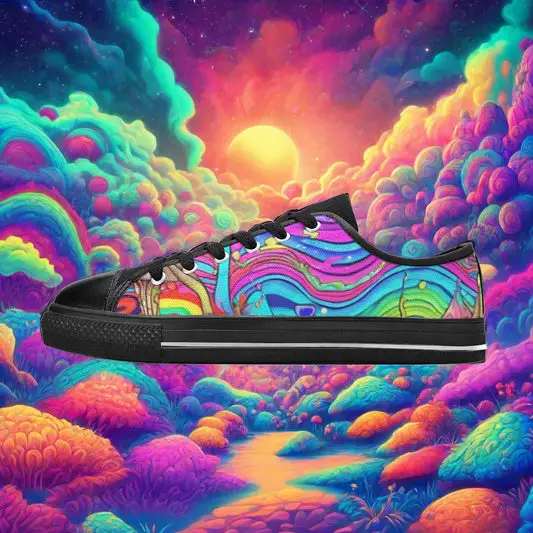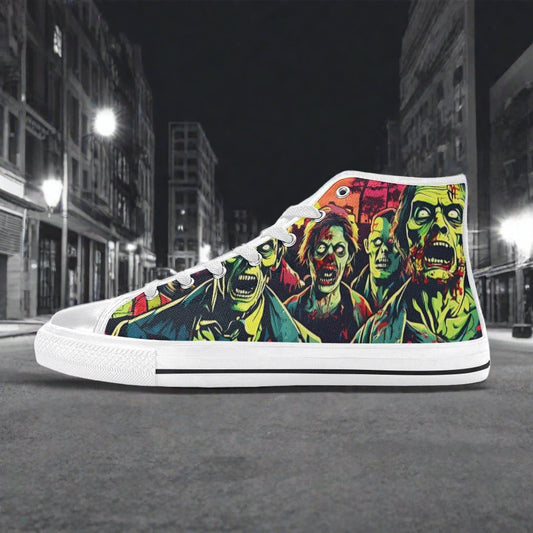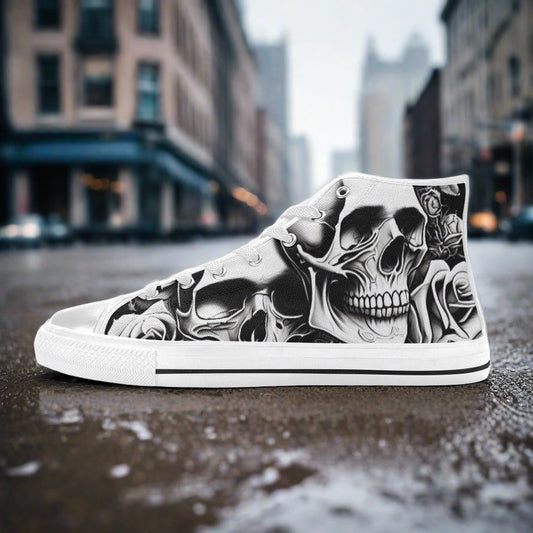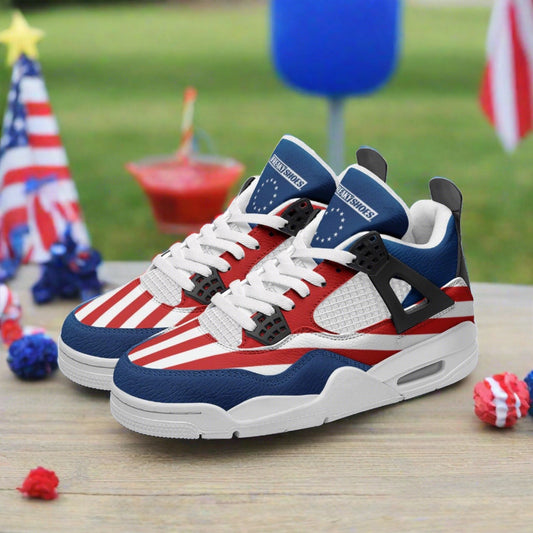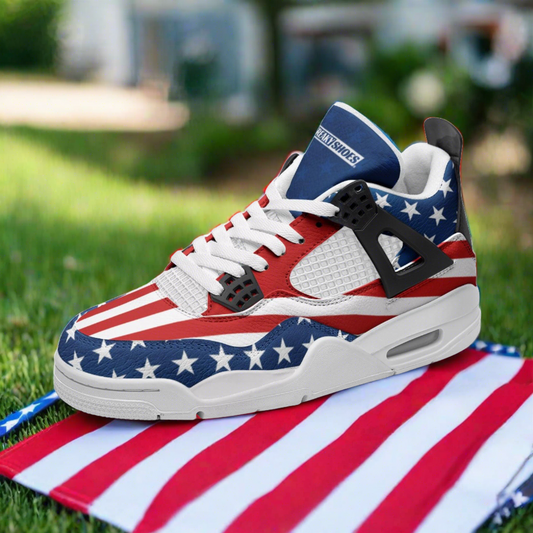Nike Air are popular shoes worldwide, but do you know what makes them different? They have a unique construction with pressurized air that makes them comfortable and soft on the feet.
Nike Air are comfortable, thanks to the "air units" stored in them. These units are basically pressurized air stored in a flexible plastic in nitrogen. Their job is to provide extra cushioning, impact absorption, and enhanced comfort, making Nike Air highly comfortable for prolonged walking and hiking.
Sounds interesting? Let's discover in the following guide more about Nike Air cushioning technology and how to maintain your Nike Air to keep them comfortable and fit for a long time.
Is Nike Air Comfortable? What is Nike Air Cushioning Technology?

Nike Air uses a different cushioning system than traditional ones. Usually, footwear is designed with foam-based cushioning systems, but they have some drawbacks, like less durability, limited responsiveness, and other concerns.
So, Nike introduced a new and unique technology back in 1978 with the advent of Nike Air. These shoes were manufactured with air bubbles trapped inside the sole. The use of air bubbles instead of the traditional solid substance for classic footwear was a game-changer as it made the shoes extremely comfortable and soft on the feet.
The first Nike Air came in sneakers with the Air Tailwind, also known as Air Tailwind 79. The "air units" present in these shoes had more cushioning, shock absorption, and comfort than traditional solid substances used in footwear. This gave Nike Air a higher edge for walking, running, or other athletic activities. They are even good for hiking as the air bubbles in the shoes make them lightweight yet more dense to impact.
Today, Nike Air is popular among occasional runners, athletes, and hikers. They have sturdy support, and the compact design reduces the effort needed to walk in them. These features make them better than other shoes made of solid midsoles like rubber or foam for many reasons:
- Traditional foam materials experience more wear and compression over time, which can damage their cushioning effectiveness. On the other hand, the air units in Air Nike have a higher lifespan, even if they are used in high-impact sports or activities.
- Traditional foam lacks the responsiveness and energy return capabilities found in Nike Air cushioning technology. Because of this, Nike Air has better performance than other footwear.
- Foam materials can be sensitive to temperature changes. In extremely cold conditions, traditional foam becomes rigid and less pliable. Nike Air is designed to withstand external factors like cold, heat, dirt, and snow.
- Over time, foam materials develop a compression set, meaning they lose their original shape and thickness. This can result in reduced shock absorption and support, which is not the case with air bubbles of Nike Air.
To sum up, Nike Air is highly comfortable because of their advanced cushioning technology that uses air bubbles instead of rubber or foam in the sole. These air bubbles or air units make the shoe compact, better at shock absorption, and easier to wear and walk for prolonged sessions.
Besides the cushioning technology, there are also other factors that make Nike Air comfortable. Let’s explore them below.
Other Factors that make Nike Air Comfortable
Nike Air are not just good at cushioning; they have excellent padding, arch support, and grip as well. Let’s dive deeper into these factors below:
- Padding: When it comes to comfort, padding is important. Nike Air has a unique padding within the shoe around the collar, tongue, and insole. It enhances overall comfort during wear and cushions the foot, providing a plush feel that minimizes pressure points and reduces risks of foot strain.
- Arch support: Because arch support is crucial for maintaining proper alignment of the foot and preventing issues such as overpronation or supination, Nike Air are made to provide maximum arch support. They help alleviate strain on the ankles, knees, and lower back. This, in turn, helps reduce the risk of injuries and poor foot alignment.
- Personalize fit: Another standout feature of Nike Air shoes is their ability to mold to the shape of the wearer's feet over time. When you wear them, the soles gradually conform to the wearer's individual foot shape. This helps achieve a customized fit that enhances overall comfort and support. Moreover, these soles are removable, so you can replace them if they are worn out.
- Shock Absorption: Nike Air are also good at shock absorption. As the soles conform to the foot shape, they create a more effective barrier against impact forces. This way, they are able to disperse pressure evenly and protect feet against strains and injury.
- Grip: The grip of Nike Air soles is another factor that adds to the overall comfort and wearability of these shoes. Whether on the track, the court, or everyday surfaces, the outsoles of Nike Air shoes are designed to provide reliable traction. Their grippy nature increases stability and overall gait. It also reduces the risk of slipping, which is why it is the top choice of athletes around the globe.
- Breathability: Lastly, the shoes are breathable. The lightweight and airy nature of the upper materials reduces the overall weight of the shoe. The feet feel relaxed and can freely move. This is particularly beneficial for prolonged walking sessions as your feet do not get tired at all.
Can Nike Air Lose Their Comfortable Grip Over Time?

Nike Air shoes are designed to maintain their shape and size. However, certain factors and external conditions can impact the fit of shoes over time. As a protective measure, you should try to prevent their contact with moisture, heat, and extreme cold.
Note: While Nike Air is highly resistant to internal and external factors, you should still take care of the following factors to keep them in their best shape:
- Exposure to excessive moisture, such as heavy rain or immersion in water, can cause Nike Air to swell or deform. If an accident like that happens, allow the shoes to dry properly before using them.
- Moreover, prolonged exposure to high temperatures, such as leaving the shoes in a hot car, can also lead to deformation. Always store your Nike Air shoes in a cool, dry place. Never keep them in areas with excess heat.
In addition, one of the most common reasons behind stiff Nike Air is improper cleaning methods. Harsh cleaning methods or exposure to chemicals affect the materials of the shoes, leading to changes in size or shape. To avoid this, always be careful when cleaning your Nike Air to minimize as much wear and tear as possible.
How to Clean Your Nike Air to Keep Them Comfortable & Soft for Long?
Nike Air is a pricey investment, so you should make the most of it. One way to ensure your Nike Air stays comfortable for long is to clean them properly.
External factors like dirt, water, and sunlight can severely damage your Nike Air. Not only that, but internal factors like sweat and bacteria can also accumulate in your shoes, causing them to decay faster.
So, always remember to clean your Nike Air frequently to prevent tearing and discoloration. There are three cleaning procedures you should follow to ensure your Nike shoes remain clean:
-
Daily Wipe Your Nike Air
Your Nike Air can get dirty every time you wear them. Moisture, bacteria, and contact with sunlight can impact the efficiency of air bubbles and make them lose their comfortable grip.
To prevent this, it's always a good idea to clean them every day. It doesn't take much time; just wiping once a day will be enough to retain their fresh look and soft feel.
Here's how you should clean your Nike Air every day:
- Use baby wipes to clean your shoes after wearing them. Baby wipes are gentle and do not contain any harsh chemicals, so they are safe to use on the outside.
- If stains are left after using baby wipes, use an eraser to remove any scratches or scuffs on the shoes. But use the eraser only on rubbery parts; also, be gentle as the shoe contains air bubbles instead of foam.
- After cleaning your Nike Air, put inserts inside each shoe. These "inserts" are made of stiff cardboard and help the shoe keep their shape. They don't let the shoe shrink or expand, so the shoe remains fit and comfy on the feet.
Once you are done cleaning, keep the shoe in a cool, dry place, away from direct sunlight.
-
Clean Your Nike Air Once a Month
You should clean your Nike Air with water and soup once or twice a month. If your Nike shoes are exposed to dirt or snow, wash them as soon as possible by following these steps:
- First, clean the outsole with a clean, soft-bristled toothbrush.
- Fill a container with warm water and soap and submerge the shoes. Use a soap that is chemical-free to prevent discoloration.
- Take a sponge, microfiber cloth, or washcloth and carefully scrub the shoe.
- Rinse the shoe with warm water to remove all the soap.
- Insert paper towels in both shoes and air dry them in a well-ventilated room. Don't leave them in direct sunlight or dry them in a dryer.
After the shoes get dry, store them in a cool and dry place.
-
Clean Your Insoles Every Few Months
Cleaning your insoles is a great way to keep the bad odor away. It also removes all the bacteria and sweat absorbed in the insole and prevents new ones from accumulating in the shoes. Because Nike Air shoes come with removable insoles, you can easily take them out and clean them.
This is how you can clean your insoles:
- Remove the insoles from the shoes and run them under warm water.
- Use a chemical-free dishwashing liquid or laundry detergent to clean the insoles. Scrub them with a soft-bristle toothbrush.
- Once done, again rinse the insoles in the cold water to remove all the soap.
- Place the insoles onto a dry towel and pat down with the rest of the towel folded over them. Try to pat as much as possible to dry the insoles.
- Keep the insoles in a well-ventilated room or in front of a fan to air dry them. Do not leave them in direct sunlight, as it can shrink them.
You should wash your insoles every few months or when they are dirty. If there are visible stains on the insoles, know that it's time to clean them.
Other Factors that can Affect the Comfort of Nike Air
Besides cleaning your Nike Air frequently, you should also watch out for other factors that can impact their comfortable feel. While it is natural for them to deteriorate over time, you should avoid the following factors to make sure they remain a worthwhile investment:
- Protect your Nike Air from extreme temperatures like humidity, as it can affect the comfort of Nike Air shoes.
- Avoid exposure to excessive heat as it can make the shoes less comfortable. Also, prevent contact with wet conditions to keep your Nike Air safe against discomfort.
- Nike Air is good for walking and running. They are also good for hiking but not for extended periods. It's because constant contact with the rough ground can cause quicker wear and tear on the specialized cushioning technology.
- These shoes are not meant to treat foot conditions like plantar fasciitis or pronation issues. Though you can use insoles prescribed by an orthopedic specialist in your Nike Air shoes, don't rely on self-treatment.
- Incorrect lacing can lead to pressure points or an uneven fit. Instead of using the same lacing pattern that the shoe came with, try different patterns to find the most comfortable one for you.
- Over time, the insoles of Nike Air shoes may wear out, losing their cushioning properties and affecting overall comfort. Keep a check on the insoles and replace them when needed.
Final Words
Nike Air are a one-time investment, so make sure they last long. You can keep them functional and comfortable by cleaning them often and protecting them from harsh elements. Also, all parts of Nike Air, like insoles and laces, are important. You should take care of everything properly to keep the shoes long-lasting and soft.












